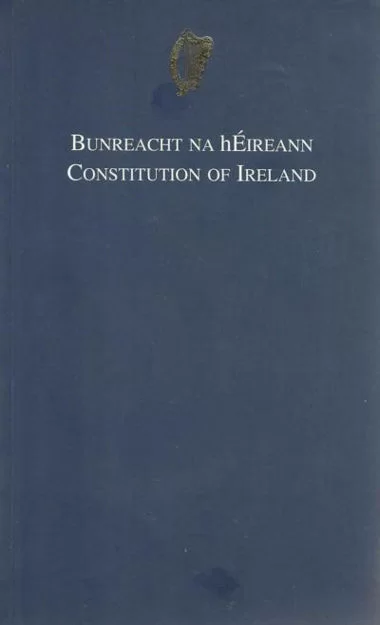Now that the two referendums have been fixed for March 8th – International Women’s Day – it becomes all the more important that public debate on the proposed amendments to the Constitution should not be based on misinformation.
There is not just one legal or interpretative meaning for these amendments. Given that they were guillotined through the Houses of the Oireachtas in a matter of hours without pre-legislative scrutiny, and that they differ from the views expressed by the Citizens’ Assembly and the Oireachtas Committee’s proposals, their implications must now be carefully considered.
The heavily State-funded National Women’s Council of Ireland claimed at its campaign launch that the present article 41.2 is a “stereotypical reference to women’s place in the home” and is “underpinning discriminatory practices, such as the marriage bar, and the exclusion of women from many sectors of society”. All untrue.
Judge Susan Denham, a Supreme Court judge and later chief justice, has previously said that “article 41.2 does not assign women to a domestic role. Article 41.2 recognises the significant role played by wives and mothers in the home. This recognition and acknowledgment does not exclude women and mothers from other roles and activities.”
The Constitution nowhere states that “women’s place is in the home”; so campaigners’ use of that phrase is simply wrong. It does provide that “men and women equally” have a right to work for their livelihoods. The amendments remove the sole constitutional reference to mothers, and their not being forced by economic necessity against their wishes to seek work outside the home.
The amendments also remove wording in article 42.1 expressly relied on by the Supreme Court in the Murphy case in 1980, when it found that income tax laws were unconstitutional insofar as they treated a married couple less favourably than two unmarried people. That wording also supports maternity leave, payment of child benefit to mothers, and might well have a bearing on future legal entitlements to work from home.
Could anyone in future be party to two “durable” family relationships at the same time? Would a man who is married be incapable of forming a “durable relationship” giving rise to family status with someone else while his marriage remained in being and undissolved by court-ordered divorce? What would the family status of any children be in relation to a man in this position? Would it continue somehow to be a family relationship recognised in the Constitution?
None of these questions are fanciful or contrived. These are all issues that will inevitably present themselves for court adjudication – often as “hard cases”. And we know that “hard cases make bad law”. The late Adrian Hardiman SC, who became a Supreme Court judge, was scoffed at for suggesting that the Eighth Amendment would lead, as it did, to travel injunctions.
So, while “throuples” may be laughed away, the implications of the proposed amendments to constitutionally detach “family” from “marriage” remain very real and obvious for family law (including division of business and farm assets), taxation law, immigration law, succession law, criminal law, pensions law and many other areas where equality rights arise.
The fact that the Electoral Commission is chaired by a very senior judge does not invest it with the function of advising voters authoritatively on such issues.
As for the care amendment, it proposes to insert a whole new part headed “Care” as article 42B in the Fundamental Rights chapter of our Constitution. Strangely, the new article confers absolutely no new rights – on carers or on people needing care.
More tinsel for the constitutional Christmas tree?

